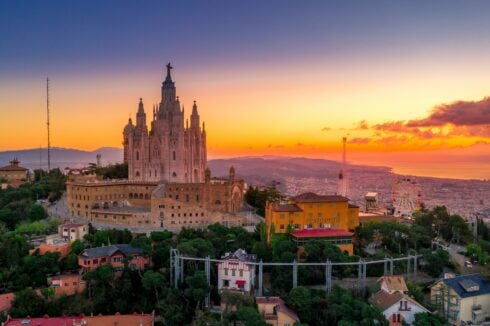With more remote workers than ever trading cold, grey skies for sunny beach towns, the Costa del Sol is fast becoming Europe’s hottest spot for digital nomads. But what does life here really look like in 2025? Let’s take a closer look at how younger expats are building a new kind of work-life balance along Spain’s sun-drenched southern coast.
Leisure and Lifestyle in the Digital Age
When the laptops close for the day, digital nomads on the Costa del Sol have no shortage of ways to unwind. Surfing in Tarifa, hiking in the Axarquía, or simply enjoying the golden beaches of Benalmádena; it’s a lifestyle that encourages both productivity and pleasure.For those who prefer indoor entertainment, online gaming continues to grow in popularity. As some UK-based restrictions like GamStop apply when using UK sites even while abroad, some expats, particularly from the UK, often turn to the best casinos not on GamStop 2025, a growing sector known for its broader gaming options, quicker sign-ups, and increased flexibility, especially for Brits living overseas.Besides online casinos, streaming platforms, esports tournaments, and interactive trivia nights offer an equally engaging digital escape. Many also dive into immersive online experiences like virtual escape rooms or multiplayer strategy games, which provide both entertainment and social connection. From online poker to escape rooms, online entertainment is evolving, and for tech-savvy nomads, it’s another way to stay connected and unwind after hours.
Sunshine, Sangria and Superfast WiFi
For many remote workers, the decision to relocate to the Costa del Sol begins with the climate. With over 320 days of sunshine each year, cities like Málaga, Marbella, and Estepona offer a welcome contrast to the long winters of Northern Europe.But sunny skies alone don’t make a destination nomad-friendly. What truly sets this region apart in 2025 is its rapidly improving digital infrastructure. Málaga, in particular, has earned a reputation as the “Silicon Valley of Southern Europe”, due to recent investments in high-speed fibre optics and startup-friendly co-working spaces.From coworking hubs in downtown Málaga to beachfront cafés in Torremolinos, many of which now offer WiFi speeds that easily support video calls and streaming, the region is clearly rolling out the red carpet for remote workers.
A Cultural Feast (with a Low Price Tag)
Spain’s famously relaxed pace of life remains a huge draw for digital nomads seeking balance. Tapas culture still reigns supreme, and you’ll find that €10 can get you a couple of small plates and a glass of local wine in many neighbourhoods outside the tourist-heavy centres.The cost of living, while rising in recent years, still compares favourably with major European capitals. A one-bedroom apartment in Málaga city centre averages around €800/month, while in smaller towns like Fuengirola or Nerja, the same goes for closer to €600.Add to that affordable public transport, low-cost health insurance options for EU and non-EU nationals alike, and it’s no wonder more nomads are choosing Spain as a long-term base.
Visas Made Easier
One of the biggest game-changers for remote workers came with the rollout of Spain’s Digital Nomad Visa. Available since 2023, this visa allows non-EU nationals to live and work in Spain for up to five years, provided they work for non-Spanish companies and meet a minimum income threshold.Applicants now face a more streamlined online process, and several local law firms offer packages to assist with everything from NIE registration to setting up a local bank account.
Finding Community
While solo travel has its perks, most digital nomads agree: community is key. Fortunately, the Costa del Sol has no shortage of meetups, coworking events, and hobby-based clubs to help newcomers plug in.Facebook groups like “Málaga Remote Workers” and “Costa del Sol Digital Nomads” regularly organise hiking trips, language exchanges, and even beach clean-ups. Spaces like The Living Room Málaga and Urban Jungle Marbella offer not only desks and coffee but ready-made social circles.
Challenges to Consider
Of course, not everything is sunny side up. Accommodation shortages in popular areas like Marbella have pushed prices up, and finding pet-friendly rentals can be particularly tricky.Language remains a barrier for some, though many expats find that picking up basic Spanish goes a long way. And while the Digital Nomad Visa offers more stability than ever, keeping on top of tax and residency rules is essential, especially for those planning to stay long-term.Still, most agree that the pros far outweigh the cons.
Conclusion
Whether you’re a solo freelancer, a couple running an ecommerce business, or part of a distributed corporate team, life on the Costa del Sol in 2025 offers more than just a change of scenery. It’s a lifestyle choice where warm weather, cultural richness, and digital flexibility blend seamlessly.As Spain continues to position itself as a global hub for remote workers, one thing is clear: the Costa del Sol isn’t just a destination. It’s home, at least for the foreseeable future.
Click here to read more News from The Olive Press.








